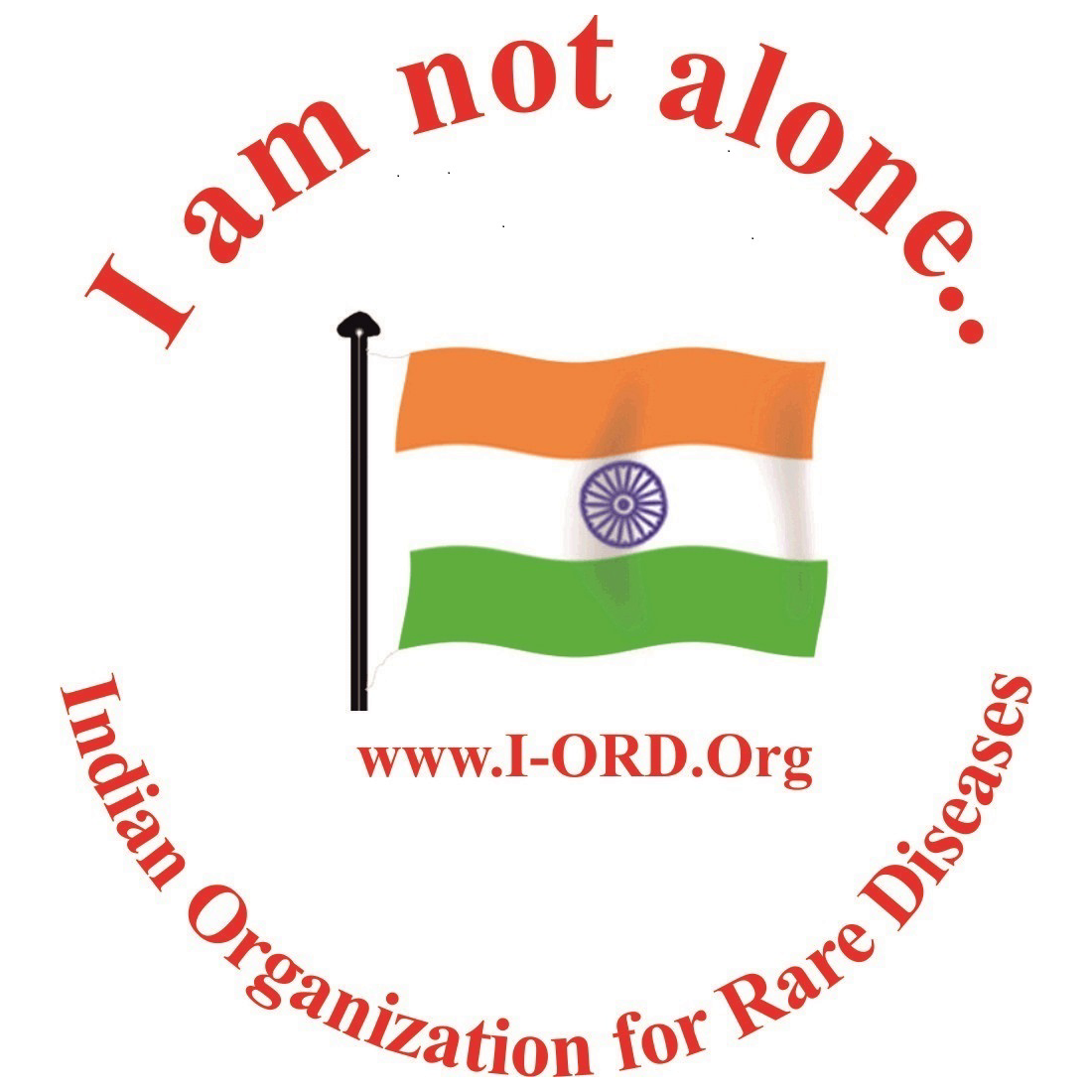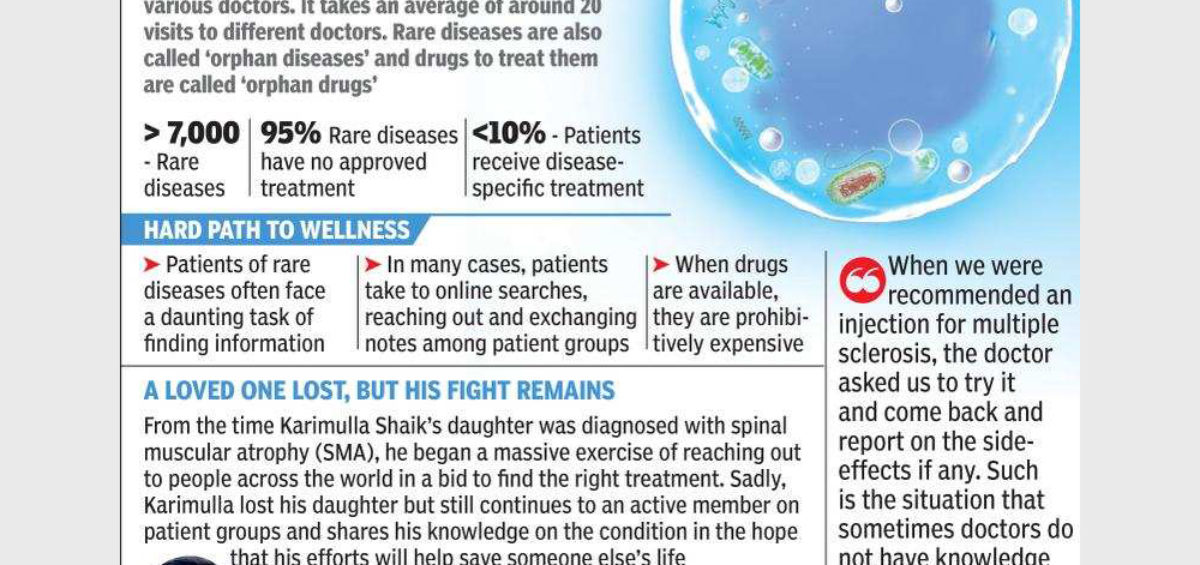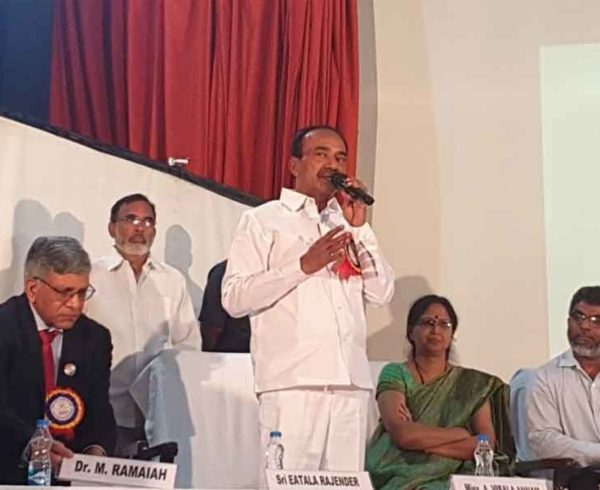Hyderabad: While the Centre has made attempts to address the problem of rare diseases and even finalised a draft policy for rare diseases, experts say that the draft has completely missed out on covering the aspect of patient knowledge. In such cases, it is often the patient who may have more knowledge about the condition than doctors themselves.
However, the policy in its current form fails to tap into this knowledge. Experts opine that the policy has been drafted based mostly on assumptions and does not address the real issues. It is estimated that around five to seven per cent of the population suffers from such diseases but there is no robust registry for such patients.
“It does not address the crux of the problem which is to know who these patients are and where they are. They have not added the most important constituent to this conversation — patients advocates, patient groups and patients. It is a global practice to include patients while formulating a policy and it is more important in case of rare diseases. A patient is much more aware of his problem than anybody else, including the doctors and unless this knowledge is tapped, the policy will not serve the purpose,” said Syed Sanaullah, management committee member of the Indian Organisation of Rare Diseases (IORD), an umbrella organisation representing patients and patient groups for rare diseases. While the draft policy talks about having a national registry by ICMR and focussing on high-risk families (of known patients), there is no concrete attempt on identifying and diagnosing patients in a systematic manner. The focus needs to be on finding unknown patients.
“It often takes years for a rare disease patient to be identified. Therefore to have a robust registry, an effort needs to be made in bringing about awareness among doctors, having a system where all patients are screened and creating some kind of a knowledge bank for reference when a doctor wants to cross check for a rare disease,” pointed out Dr Srinivas Namineni, a paediatrician who works with rare disease patients. He also said that the policy ignores the aspect of ‘orphan drugs’, which are useful to treat rare diseases but are not manufactured due to being unprofitable.
Source: Times of India


